You’ve put a lot of thought into your brand, your website and your newsletter. Your customers offer excellent feedback – you know you’re providing something that changes or improves their lives. But if you could only get more people to tune in to what you’re delivering, everyone – you and your audience – would be better for it. That’s where lead magnet ideas come in.
A lead magnet is a tool that marketers use to collect a person’s (a lead’s) contact information. And they can take a ton of time to put together. Some lead magnets are super in-depth. For example, an online course or webinar can be used as a lead magnet. So can a contest, podcast or video series. Effort, time and money go into creating those types of lead magnets, and if your return-on-investment (ROI) isn’t good, that’s a lot of wasted work.
Instead, we want you to work smarter. These lead magnet ideas have a good chance of being effective without draining your resources.
What is a Lead Magnet?
We got into it briefly in the intro, but before we cover lead magnet ideas for growing your email list, it pays to explain what a lead magnet is.
A lead magnet encourages people to provide their contact information – in our case, their email address – in exchange for a high-quality resource. A lead magnet may be an ebook, template or white paper. It’s usually some type of downloadable asset, but it may also be a coupon code.
Lead Magnet Ideas: 4 Must-Have Components to Include
There’s a reliable structure built around a lead magnet. Here are the normal components that accompany a lead magnet:
- Call-to-Action (CTA): This is the statement and button or link that a user clicks to get to your lead magnet. The wording here is important because it has to inspire the user to click. It has to be both compelling (so the user knows what they’ll get from taking the next step) and clear (so the user knows exactly what that next step is). There are CTA plugins you can use on your site to maximize results.
- Landing Page: After clicking on your CTA, the user will be brought to the landing page. This page will capture the user’s information – there should be a form with fields for the user to fill out. There is a myriad of landing page plugins for WordPress that you can use to create your pages quickly.
- Thank You Page: After submitting their information, the user will be auto-directed to the thank you page. This is where they’ll download the resource they were promised.
- Kickback Email: This is the first message the user will receive after the above exchanges. This is the beginning of the email campaign that will run to keep the user engaged with your brand.
Now, let’s move on to the lead magnet ideas that can help you grow your email list.
Lead Magnet Ideas to Grow Your Mailing List
When choosing the lead magnet that’s right for your business, remember this: The most effective lead magnets are specific. A broad lead magnet may feel like it’ll attract the most people, but it actually won’t be compelling enough to attract very many at all. On the other hand, a specific lead magnet will connect with a large number of people in a targeted segment of your market. So while you may appeal to a smaller part of the market as a whole, you’ll be irresistible to them.
Keep this tip in mind, too: The lead magnet has to offer value fast. If the user doesn’t think they’ll get something out of the downloadable content within five minutes, they won’t want to bother with it. Short, specific lead magnets that get to the point are better than lengthy, complex ones. That’s why you won’t see a three-week training course or a full-size ebook on this list.
Here are 12 lead magnet ideas so that you can build your list and reach a larger audience.
1. Assessment

This lead magnet helps the user determine if they need more help with something, whether that’s training a puppy or marketing their business. An assessment also has an element of self-service, which today’s consumers love. And if they discover that they’re behind the curve, you’ll be there to help them. Plus, you’ll have gathered more than just their email address. That means that when you do move in to offer guidance, you’ll already know a lot about the problems they’re facing. This gives you the opportunity to customize your messaging and offer a tailored suggestion or solution. One practical example of this would be to use a quiz plugin to create a quiz funnel that engages users to take a 5-minute assessment of their knowledge on a particular subject (like “test your digital marketing IQ”).
2. Blog Post Bonus Pack

This idea is great for a CTA at the end of a blog post. You can offer something helpful that isn’t included in the blog post itself or that’s packaged in a way that’s more convenient for the user. For example, let’s say you’re writing about how to pack for a trip to Disney World. The bonus pack could include a printable packing list. You could also have a sheet with links to products you talked about in your article. (P.S. If those are affiliate links, they’ll work in your favor.) This is also an easy way to update a blog post without making changes to the actual article – if you want to include additional information, you can add it to the bonus pack.
3. Cheat Sheet
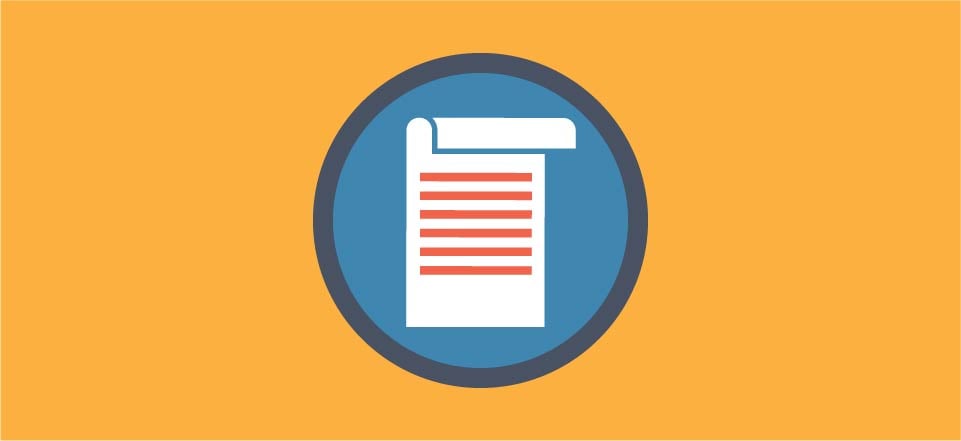
There are a lot of ways to turn actionable blog posts into lead magnet ideas. If your content doesn’t easily lend itself to something like a checklist or a resource guide (more on both of those lead magnet ideas in a minute), you can create a cheat sheet. This resource is basically a roundup of the most important ideas from your blog post. The user can keep it on hand for when they need to quickly reference the information without digging through your blog again. It works well for things like interview prep, cleaning hacks, tips for using a certain piece of software, etc. It’s not a guide; instead, it’s a short, one-page document with just the most important facts.
4. Checklist

If you have an instructional blog post with a lot of steps to follow or things to do, make it easy on your readers by providing them with a checklist. For example, if you wrote a blog post about how to launch your first WordPress website, you could include a resource guide with bite-sized, step-by-step tips that are easy to follow. Packing lists are also popular, like in the “bonus pack” suggestion above.
Here’s something else to consider: You can build out your lead magnet ideas with time. You can start with something like a checklist, then turn it into a more well-rounded bonus pack in the future.
5. Forum or Membership Site

If you don’t already have a forum or membership site, creating one for the sole purpose of having a lead magnet is too labor-intensive. However, if you do already have one, you can offer free access (for a limited time) as your lead magnet. Give away one free month of access to anyone who signs up for your mailing list. If you have different membership tiers, give them access to the highest tier – they’ll be more likely to sign up for that one when their free trial is over because they won’t want to lose the features that come along with it.
Don’t have paid options? If you have a forum that’s open to anyone who wants to join, make it so they can only get access if they provide their email address.
6. Mini-Ebook

We don’t suggest you write a mini-ebook from scratch. Instead, head over to your blog and find a handful of posts that all revolve around the same topic. You want the topic to be super helpful to your audience, so make sure it solves a big problem many of them are having right now. For example, if you’re a freelance writer, you may have a series of posts that talk about working from home. You can bundle them together into a master guide. Then, if you feel that a big piece of information is missing, you can write a new article or two to fill in the gaps. Bonus: You’ll have content that can go on your blog and in your ebook.
7. Resource Guide

This will sound similar to the bonus pack we mentioned earlier, but it’s a bit different. If you have a blog post that goes in-depth on a topic and has a lot of actionable tips, you can offer a resource guide as a lead magnet. The guide’s purpose is to condense the blog post’s information in a way that’s easy for the user to reference and take action on. For example, let’s say you wrote a blog post about how to build a wardrobe. The resource guide could have links to the pieces you suggested, plus styling tips for putting outfits together. A resource guide makes it easier for the reader to implement what you suggest. They get more value from your content, and you get their email address.
8. Spreadsheet

Depending on what industry you’re in, spreadsheets may be super helpful to your audience. For example, if you’re in the business or financial industry, spreadsheets are necessary for project planning or budgeting. Get your prospective customer started with a ready-to-go spreadsheet that they can plug their information into. Let them either download it or set it up so they can copy a read-only version to their Google Drive account. Along with it, offer an instruction sheet or manual for getting the most out of it. Also, it’s helpful to include how-tos for basic customization options, like changing the color of cells, organizing columns alphabetically, and automating basic calculations.
For simple spreadsheets, you can use almost any WordPress table plugin to display your data. Some even handle advanced functions (that you’d find in a spreadsheet). The best part about them is that they are meant for displaying information on a website. Many offer the ability to copy and paste data straight from a spreadsheet—so there is really not that much work involved if you are displaying this type of content.
9. Templates and Scripts

Templates are excellent if the user has to do the same thing over and over, like build a blog post or put together social media posts. The template can be used to always design content in the same way.
Script lead magnets work particularly well for audiences in the customer service or sales niche. Like a template, a script will have fill-in-the-blank sections so the user can customize it to their purposes. They can then use the script when talking on the phone with a prospect or when sending a sales email.
These lead magnet ideas are also useful for specialty how-tos that everyone needs but few people know how to do. For example, just about everyone needs a resume, but few people know how to write one. That makes resume and cover letter templates must-have tools.
10. Webinar

We don’t think a full-scale online learning course is a good idea for a lead magnet, but a short webinar is definitely enticing and easy to put together. It should be live so that viewers can engage with you, which makes them feel more invested. You can then make a recorded version accessible so that people who missed the live event can still watch it – and that can serve as a lead magnet, too.
Choose a topic that you can tackle within 30 to 60 minutes. Your audience should leave the webinar feeling like they learned something. However, don’t give away all your secrets – you can use the webinar to lead to the next action you want viewers to take, like signing up for one-on-one training.
11. Workbook

Sometimes, your blog content can only guide your readers, not actually solve their problems for them. If you write about something that requires the reader to do a lot of thinking and planning on their own, a workbook may make an excellent lead magnet. For example, let’s say you write about how to create a target customer persona. You can tell the reader how to go about creating their own, but they’ll need the space to start fleshing it all out. With a workbook, they can take your advice and then be guided through the actual process. And in your kickback email, you can point them to the next issue they should tackle, like choosing ad demographics or selecting the right social platform to reach their audience.
P.S. If your brand focuses on scheduling in some way, like meal planning or time management, you can offer downloadable planner sheets instead of a workbook.
12+. Bottom-of-the-Funnel Lead Magnet Ideas

When a potential customer is at the bottom of the funnel, that means they’re very close to converting. Maybe they have items in a cart or they’ve spent a lot of time on your website. At this point, they don’t need much more to push them to take the next step. Here are a few lead magnet ideas for this stage:
- Buy-one-get-one offer
- Complimentary consultation
- Free shipping
- Limited-time free trial
- Promo code
- Quote for a service
Bottom-of-the-funnel lead magnet ideas give them that nudge they need. If a potential customer has a bunch of items in their shopping cart, free shipping or a coupon code could be all it takes to get them to that next stage. And when they do make a purchase, you can require their email address, which will automatically put them on your mailing list.
Final Thoughts About Lead Magnet Ideas
At first glance, a lot of these lead magnet ideas are similar. Many of them take existing blog content and bundle or enhance it to create a downloadable lead magnet. But each idea is slightly different from the next, and what you call your lead magnet is as important as what’s included in it. Your audience may be more interested in a cheat sheet or checklist than a resource guide or workbook, for example.
Lead magnets are everywhere today. As you go about your day, especially when you’re online and casually browsing social media or your favorite websites, pay attention to the CTAs and lead magnets that catch your eye. And if you can remember to, also note what doesn’t work – then make a point to steer clear of those tactics when designing your own marketing campaigns.
You may also want to check out my article with the 6 Best Free Lead Generation Platforms and Apps.
Post Images via bearsky23, Ellagrin, Maksym Drozd, TECHNO_DESIGN / shutterstock.com

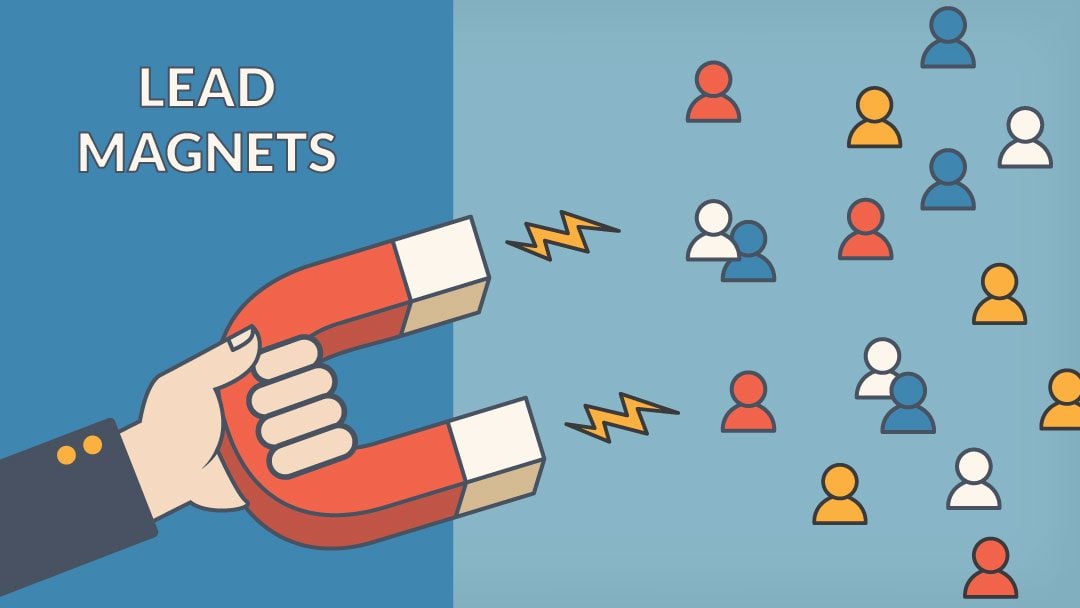




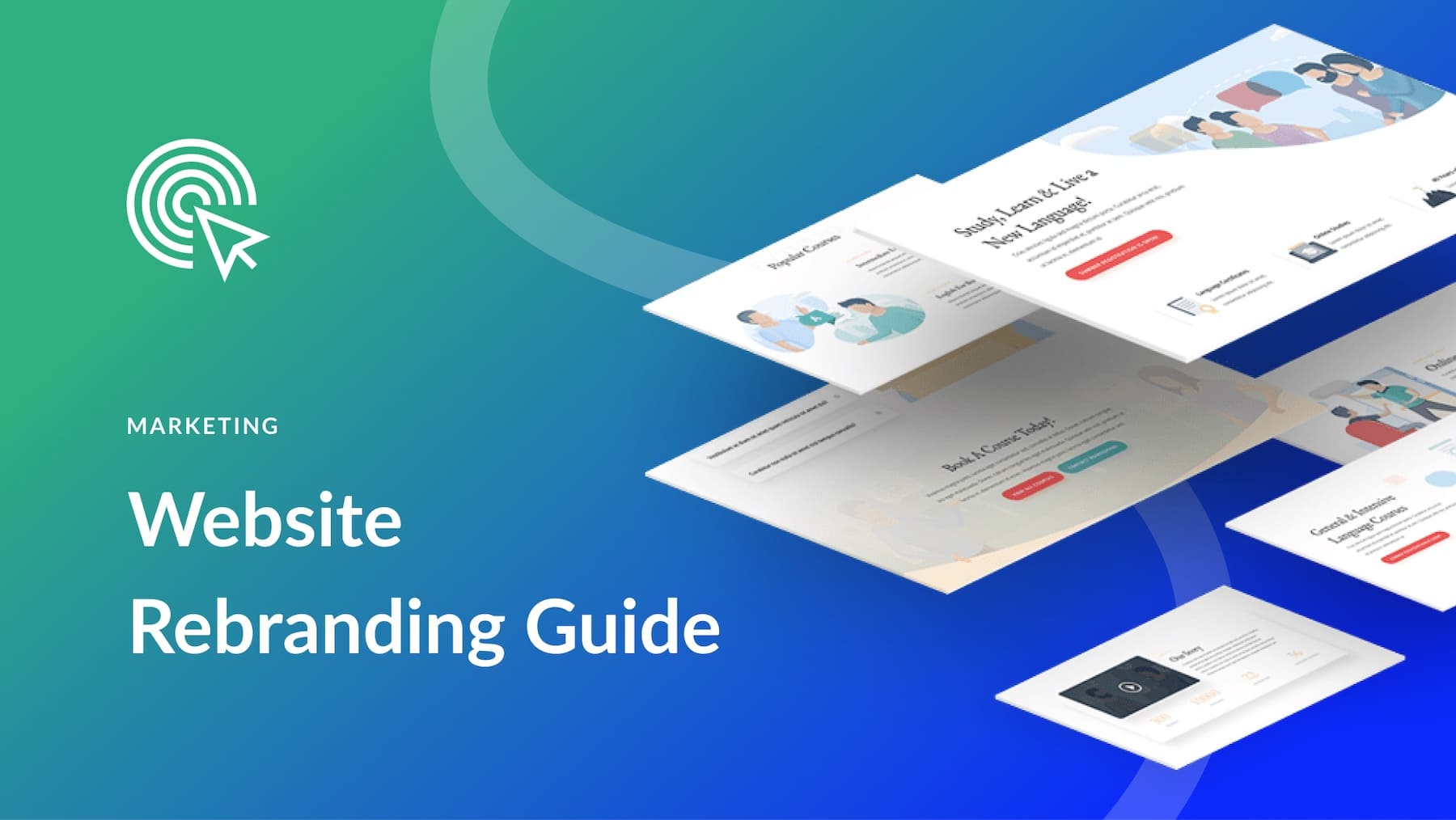
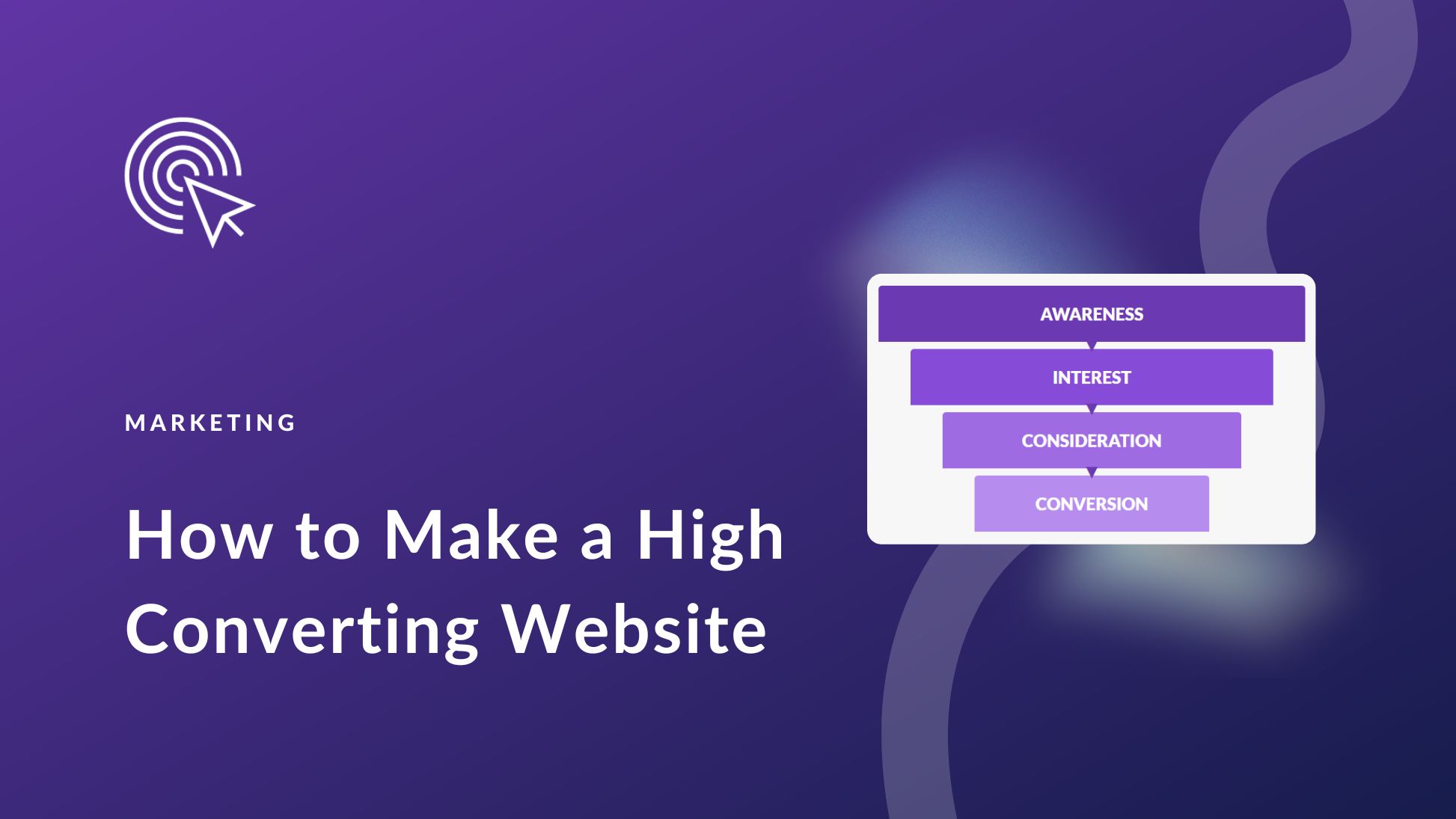
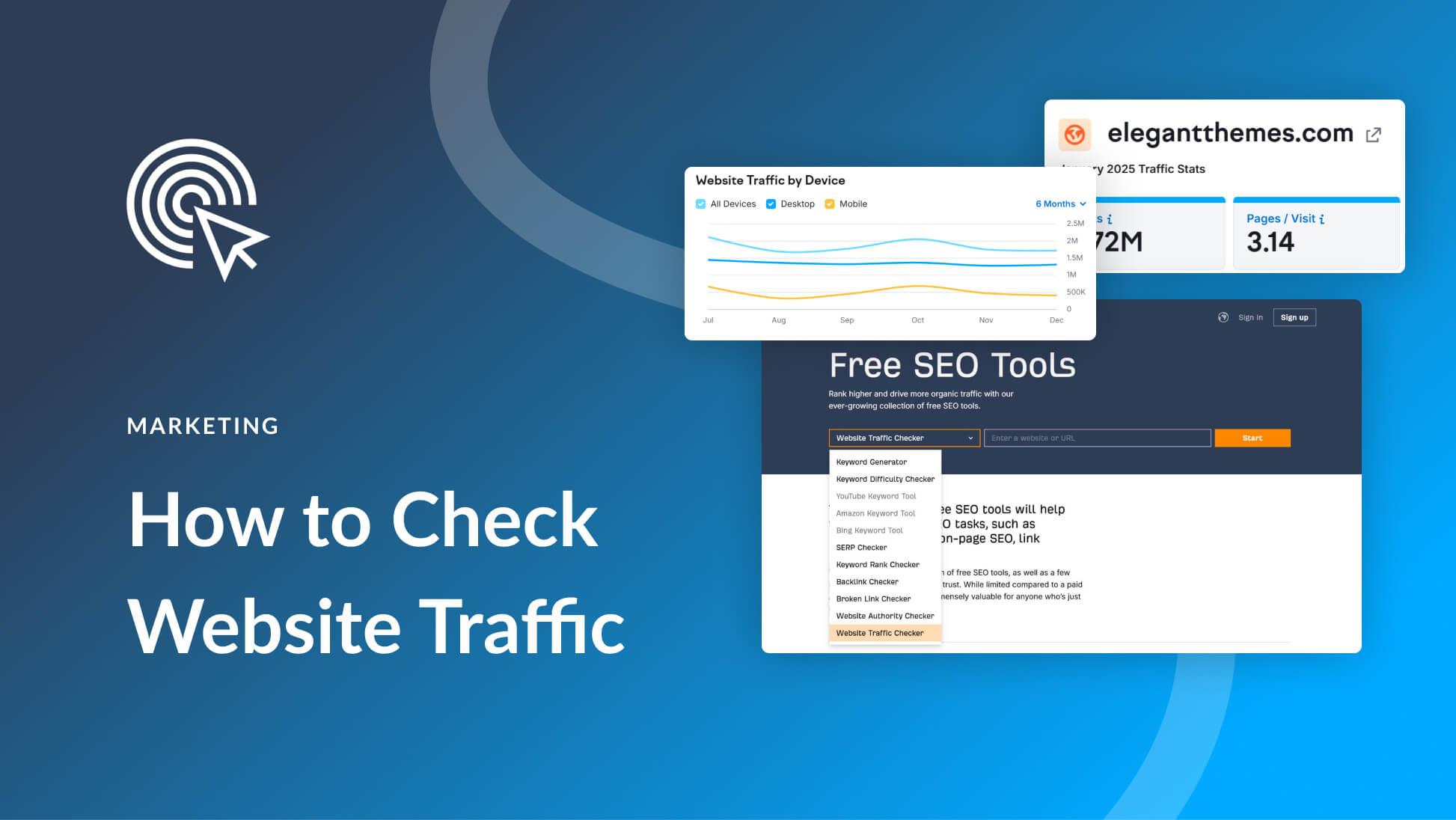
It sounds really interesting to me. I have website and these lead Magnet ideas will gonna help me a lot in my business. Thanks, Lindsay
Thanks Lindsay! I’m going to try some of the tips you recommend, I hope they work.